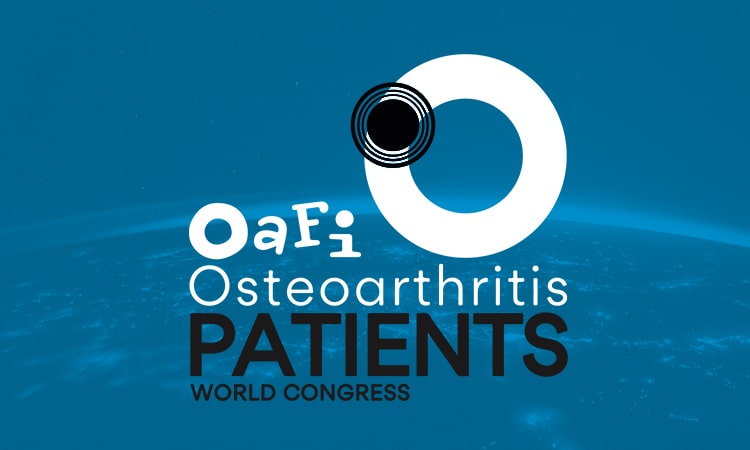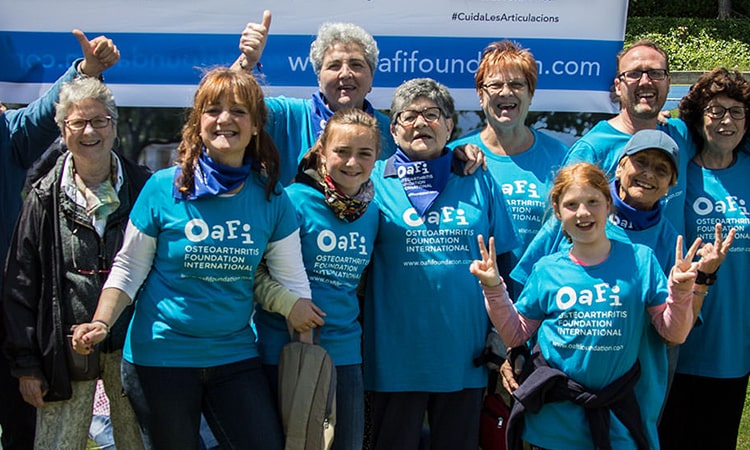- Foundation
- Actions
- Osteoarthritis
- Actuality
- OAFI Radio/TV
- Get Involved
- Contact
OAFI
Osteoarthritis International FoundationC/ Tuset, 19 · 3º 2ª
08006 Barcelona
(+34) 931 594 015
info@oafifoundation.comSchedule:
Monday-Thursday 9AM-6PM
Friday 8AM-3PM
-

-

-

The enormous value of Corporate Social Responsibility

An increasingly aware society
A society that is increasingly aware of the need to respect the environment and social well-being requires companies to develop in a sustainable and responsible manner. Companies that effectively assume these commitments and integrate these values into their strategy, practice Corporate Social Responsibility (CSR).
The United Nations (UN) is the organization that points out that companies are the protagonists and responsible for the change towards a sustainable and responsible development, since they must not only generate legitimate business, but must do so in a respectful manner, managing the impact of their activity not only on their stakeholders such as customers, employees, shareholders and society, but also the environment. With all this, it contributes actively and voluntarily to social, economic and environmental improvement, as an added value, contributing to its corporate reputation, beyond mere compliance with laws and regulations, assuming strict compliance.
The origins of Corporate Social Responsibility
The antecedents of CSR date back to the 19th century, within a framework of cooperativism and associationism, which sought to reconcile business efficiency with social principles and justice; but it was not until 1953 that Howard R. Bowen developed this concept, which took on a special meaning in the field of health in relation to the concept of “One Health”, by recognizing that the health of people, animals, plants and the environment are so closely related that they are interdependent, requiring action through prevention, detection, management, and improvement to promote health and well-being, as well as sustainability.
CSR is an exercise in humanization inside and outside the organization, because ethically, it refers not only to the existence of the values described above, but also to the authenticity of its actions and their generous application.
Non-Governmental Organizations
Likewise, Non-Governmental Organizations (NGOs) and Non-Profit Organizations (NPOs) should apply the same CSR principles as other companies, although their own idiosyncrasies make the participation of volunteers common, along with that of professionals who accept a lower salary in exchange for the personal satisfaction of their work.
In any case, these NGOs and NPOs, in order to undertake actions that transform and improve society, also need the CSR of ordinary companies to achieve this goal, since funding is necessary and, in application of ethics and transparency, enhances donor organizations. In fact, these relationships are regulated and even financial donations benefit from tax incentives for patronage.
From the International Osteoarthritis Foundation-OAFI, we would like to thank the sensitivity and the CSR exercise of the companies that apply it for the benefit of so many people affected by osteoarticular pathology, often multi-pathological, mostly elderly and women, but also young athletes, patients with obesity, etc.
Dr. Jose Luis Baquero Úbeda
Veterinarian and Doctor of Medicine.
Corporate Social Responsibility, Institutional Relations and support to the Scientific Department of OAFI (Madrid).

Remember that OAFI FOUNDATION INTERNACIONAL and Spanish Association with Osteoporosis and Osteoarthritis are non-profit organizations of national and international scope based in Spain, whose main mission is to promote the rights and responsibilities of people suffering from diseases such as osteoporosis, arthrosis, sarcopenia and among other osteoarticular pathologies.
We are at your disposal
We are now and always at your disposal, remember that if you have joint disease, or know someone who does, family, friends, acquaintances, we encourage you to get to know us and join OAFI and / or AECOSAR through our websites or by calling the contact phone: AECOSAR at 914312258, OAFI at 931594015. Both the Members and Volunteers Department and the CSR Department will be pleased to welcome you and guide you in whatever you need. We also have programs aimed at prevention in children and youth.
Take care now of the joint health of the youngest, so that they can enjoy a full life with a great quality of life!
Photo by Nataliya Smirnova in Unsplash





















